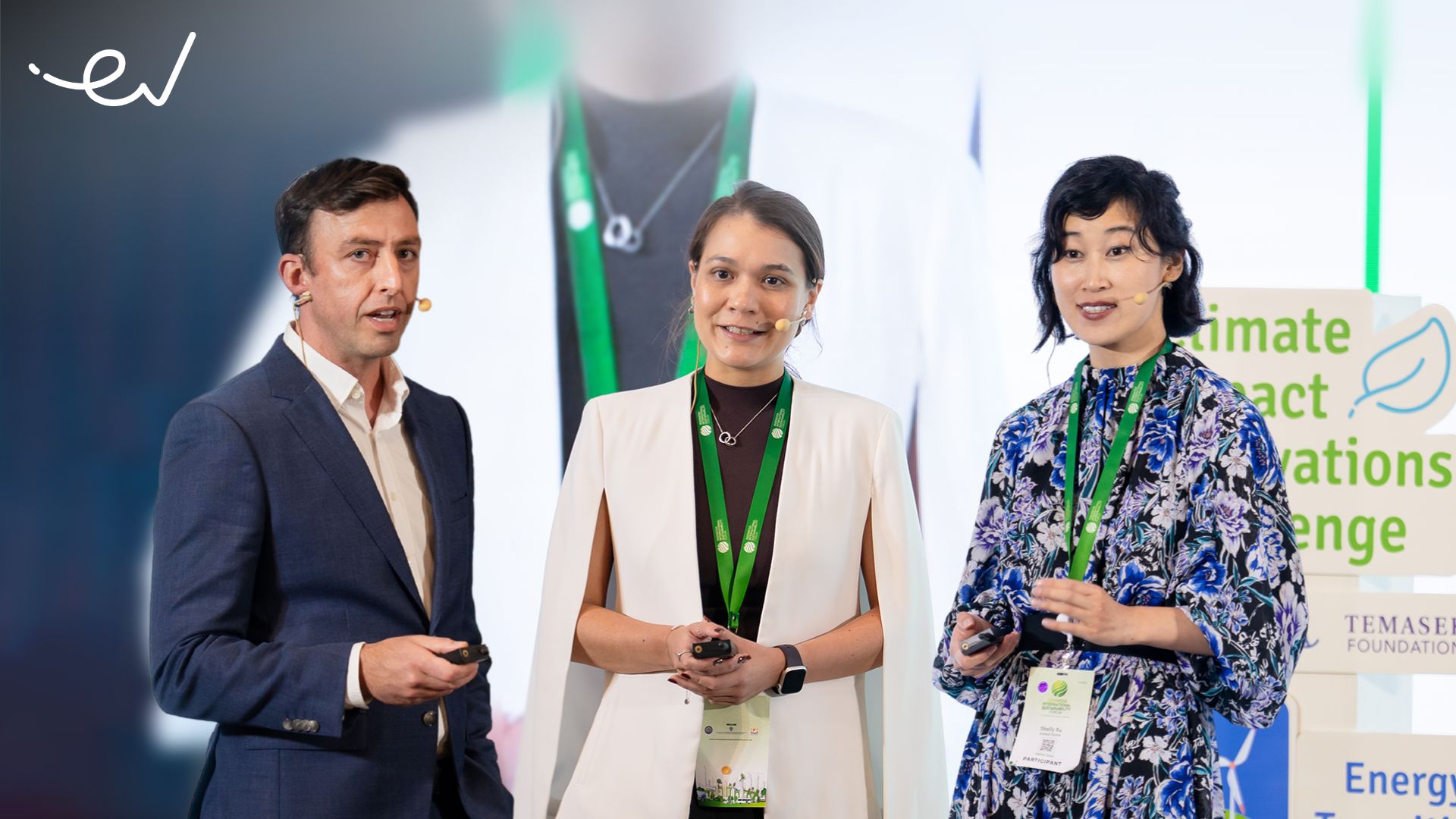Most of the breakthroughs in artificial intelligence (AI) development are already happening in many countries, and in Indonesia, these innovations are also on the rise. With a young, tech-savvy population and favorable macroeconomic trends, Indonesian companies are starting to adopt and advance on AI’s vast opportunities. Local and international investors are also eyeing AI’s potential for Southeast Asia’s largest economy.
The Indonesia National AI Strategy (Stranas KA) 2020-2045 lays the groundwork for AI growth by promoting collaboration among the government, industry, academia, and the community. To facilitate coordination between the public and private sectors, an AI Innovation center called Pusat Inovasi Kecerdasan Artifisial (PIKA) has been established, and at the forefront of implementation is the “Collaboration to accelerate Indonesian Artificial Intelligence innovation” (KORIKA), a collaborative effort led by the Artificial Intelligence Industry Research and Innovation Collaboration. Indonesia anticipates that AI will make a significant contribution of US$366 billion to its economy in the next decade.
Current AI applications in Indonesia
AI is already making its mark in various sectors in Indonesia, spanning logistics, HR, education, cybersecurity, automation, content creation, healthcare, and agritech. Implementing AI improves operational efficiency and enables businesses to provide AI products that boost client productivity. Here are some notable current AI applications, including those within East Ventures’ ecosystem:
Logistics
waresix, the largest logistics integrator in Indonesia, has developed an AI-based operating system known as the waresix Operating System (wOS) to streamline logistics and supply chain processes. Within the wOS, AI is utilized to analyze historical data, optimize pricing, and enhance delivery routes. This allows waresix to offer competitive price comparisons in a shorter time frame.
AI is also employed in the wOS for the smart routing feature, which determines the optimal delivery route by considering various field factors. This not only shortens travel time but systematically reduces carbon emissions, enhances fuel efficiency, and prolongs the lifespan of trucks.
Meanwhile, McEasy, a Software-as-a-Service (SaaS) provider for logistics and transportation operators, also utilizes AI technology in one of its products, the Vehicle Smart Management System (VSMS).
McEasy’s VSMS simplifies fleet management and monitoring processes by leveraging real-time analysis supported by AI technology. The VSMS streamlines scheduling improves the accuracy of Estimated Time of Arrival (ETA), and ensures overall travel safety.
HR management
Mekari, a leading software-as-a-service (SaaS) company in Indonesia, is integrating an AI-powered feature, named Airene, into its main products. For instance, Jurnal utilizes Airene to summarize financial reports and offer valuable insights and recommendations.
Furthermore, in Qontak Omnichannel, Airene helps summarize customer conversations and assist agents in crafting improved and relevant responses. In the near future, Airene will also enable a more advanced Qontak chatbot capable of handling customer inquiries with minimal agent involvement, allowing agents to prioritize more critical tasks. Likewise, Talenta will also soon be empowered by Airene to help the HR team extract data and insights faster.
Education
In the education sector, Indonesia has witnessed the integration of AI into online learning platforms, including Ruangguru. It has applied AI in the service, called Roboguru, since 2021. Roboguru allows the users to take and upload a picture of a problem, and will provide the answer and how to solve the problem.
Moreover, Ruangguru also offers AiRIS, a service that utilizes artificial intelligence technology to provide a tutoring experience that feels like a buddy’s. AiRIS can be used by elementary, middle, and high school students to understand study materials, help them finish homework, practice with exercises, and even have casual conversations.
By leveraging AI, educational platforms can empower students to learn more efficiently and effectively, ensuring a customized learning journey for every student.
Cybersecurity
Peris.ai is an example of how AI can be used in cybersecurity. It has developed a product that combines AI and machine learning to help protect IT systems. By continuously learning and adapting to new threats, their system can provide better defense against cyber attacks.
AI and machine learning can analyze large amounts of data and generate insights and recommendations that go beyond what humans can do manually.
Automation technology
Meeting.ai is AI-powered tool designed to transcribe, organize, and summarize meetings, whether conducted online, offline, or from recorded session meetings. Recently, this startup has integrated DeepSeek open-source technology to enhance transcription quality with more affordable cost.
Moreover, Feedloop offers a Gen-AI platform to drive operational excellence through intelligent automation and deep data analysis, helping enterprises enhance efficiency and drive competitive advantage. Their technology enables companies to integrate AI into their operations by building their own AI Co-Pilot.
Content creation
Bythen develops proprietary digital characters that serve as digital identities, empowering users to become virtual influencers. Through AI-powered content generation tools, creators can leverage their digital personas to generate creative content, livestream, and transform their digital characters into digital twins to grow their followings, and monetize their influence. The startup aims to make virtual influencer creation more accessible and affordable by lowering entry barriers.
Users begin their journey by purchasing a Bythen Non-Fungible Token (NFT) from Bythen’s digital store, which features an assortment of collections ranging from your favorite reputable IPs to innovative character designs. These Bythen NFTs are redeemable for digital characters, each backed by an NFT that serves as verifiable proof of ownership on the blockchain.
Healthcare
Nexmedis is an Indonesia-based AI-powered Health Information System (HIS) provider that combines expertise in computer science, management consulting, and medicine to drive healthcare innovation. Its Clinical Decision Support (CDS) system assists medical professionals by offering diagnosis recommendations with ICD-10 codes, enabling more comprehensive documentation and efficient insurance claim processing for Indonesia’s Social Security Agency on Health (BPJS) and private insurers.
In addition, Nexmedis is developing an AI-powered transcription tool that converts doctor-patient conversations into structured digital records, reducing paperwork and improving efficiency. To date, Nexmedis has served hundreds of healthcare facilities and received recognition from Indonesia’s Ministry of Health.
Meanwhile, Mesh Bio is pursuing chronic disease prevention by building an innovation platform called DARA® Health Intelligence Platform, which enables personalized healthcare at scale.
Mesh Bio integrates multidimensional patient data and feeds it into its analytics engine, which includes its “digital twin technology.” Ultimately, it generates personalized insights about patients and recommends care plans to doctors.
These clinical data will then be translated into actionable insights, providing tailored recommendations for doctors to decide on the right treatment and care for patients. It allows patients to better manage their health, lifestyle, and disease risk.
Mesh Bio is “excited” to incorporate generative AI (GenAI) into its clinical analytics engine, its founder Andrew Wu stated. The firm also wants to combine it with HealthVector® Diabetes, the world’s first foundational digital twin model of human biology.
Agritech
Chickin is a poultry startup that focuses on maintaining broiler chicken production by using a fullstack farm management system and cage management application to ensure the best quality product when delivered to customers.
The startup has developed a technology called Chickin Smart Farm, which utilizes AI to measure real-time cage temperature and adjust the environmental conditions to meet the appropriate standards. This technology helps farmers optimize electricity usage more effectively and efficiently.
Promising AI opportunities
While the implementation of AI in Indonesia is yet to be fully realized, its potential is promising, particularly in addressing healthcare inequality and revolutionizing various industries. AI is unlocking new possibilities to tackle healthcare challenges in Indonesia, by extending its access to remote areas.
By studying vast amounts of historical doctors’ treatment and patient data, AI can replicate the advice of numerous doctors at a lower cost, enabling accurate diagnoses and raising the standard of care.
Beyond healthcare, AI can enable scientists and engineers to make breakthroughs in various fields. Industries like agriculture, manufacturing, and mining can benefit from AI’s capabilities, revolutionizing practices and optimizing manufacturing operations for increased efficiency and productivity.
In agriculture, AI applications in crop monitoring, disease detection, and yield optimization can revolutionize farming practices. By analyzing satellite imagery, weather data, and soil conditions, AI can help farmers optimize their approaches, especially in the face of climate change.
Furthermore, the financial services sector has an opportunity to leverage AI to address the low financial literacy prevalent in Indonesia. By analyzing diverse financial needs and behaviors, AI-powered solutions can tailor financial products and services, expanding access to financial resources and enabling more accurate credit scoring for underserved communities.
Indonesia must prioritize responsible data management in compliance with regulations. By establishing responsible practices in data collection, storage, and use, Indonesia can create an environment that supports the ethical and effective use of AI, fostering increased productivity and improved outcomes.
To strengthen the AI ecosystem in Southeast Asia, East Ventures is excited to present “IndoBuild AI,” a dynamic platform for AI innovators to showcase their ideas on tackling real challenges and unlocking new possibilities. The mission is to leverage AI to solve efficiency and drive impactful solutions in Indonesia.
Featuring several themes such as AI in healthcare, AI in lifestyle, AI in education, AI in government and AI in agriculture, IndoBuild AI ready to reimagined Indonesia with matured AI.
The first publish date of this article is on 14 July 2023.
Some of this article’s information still refers to the original publish date.







